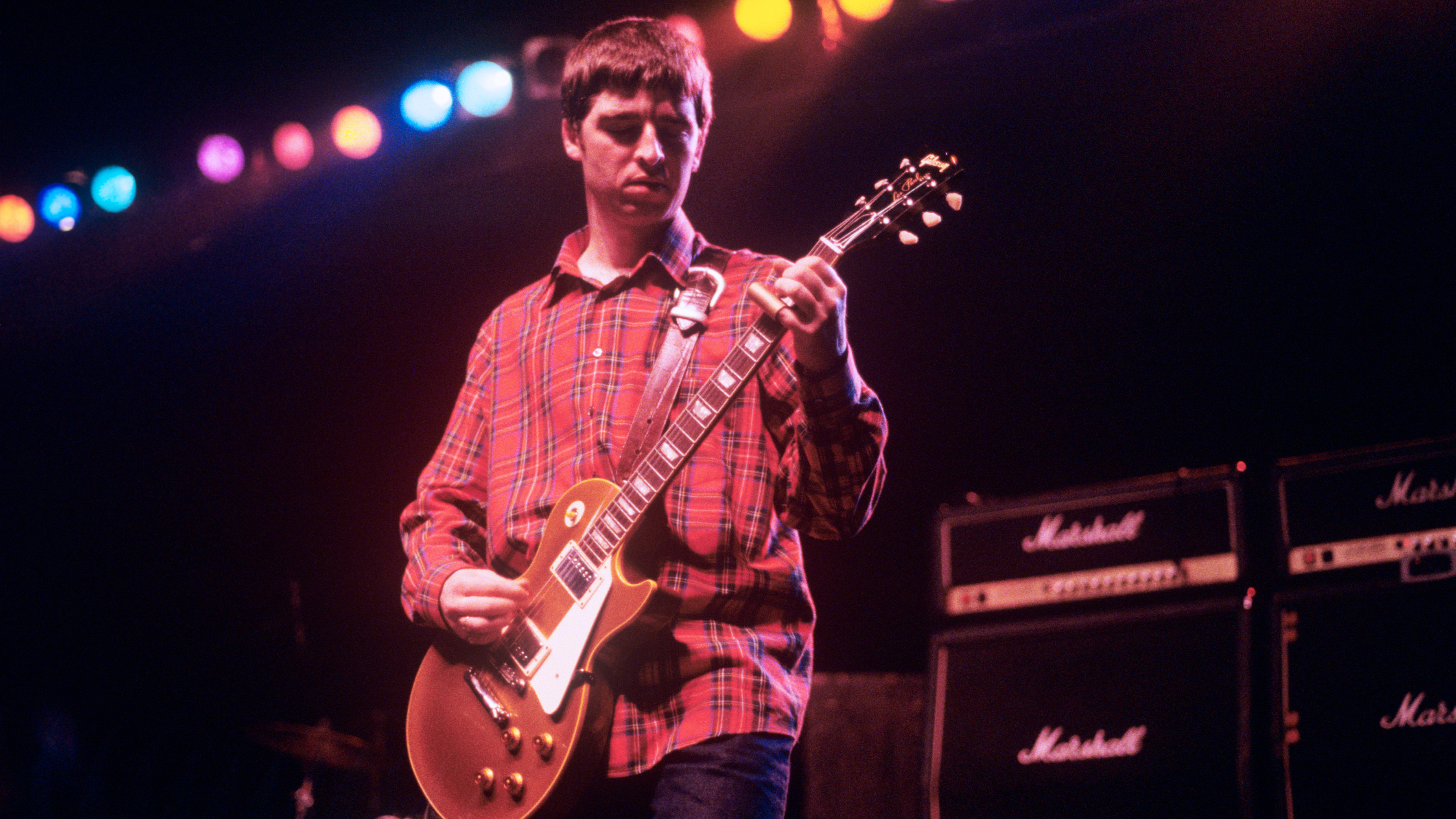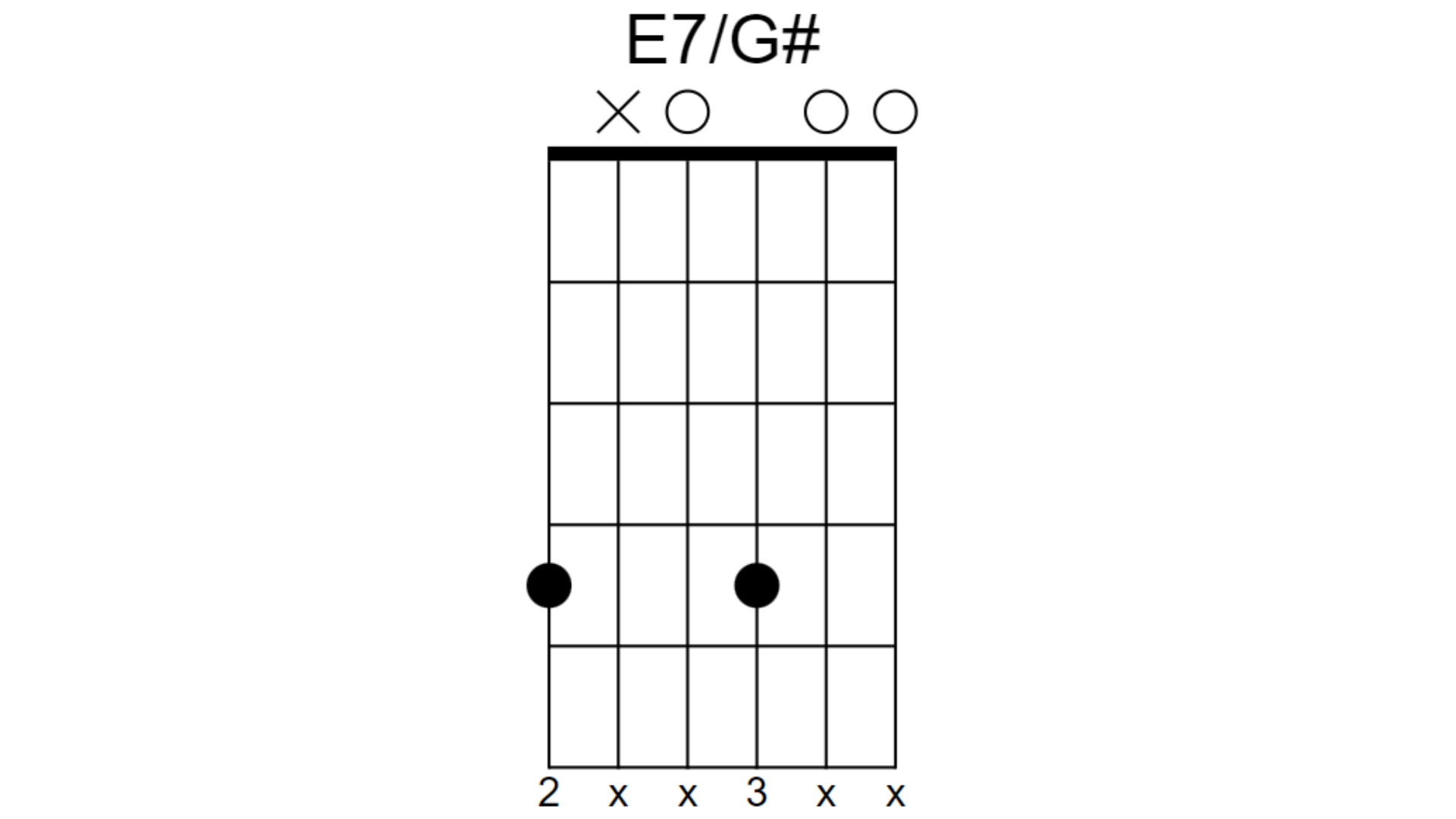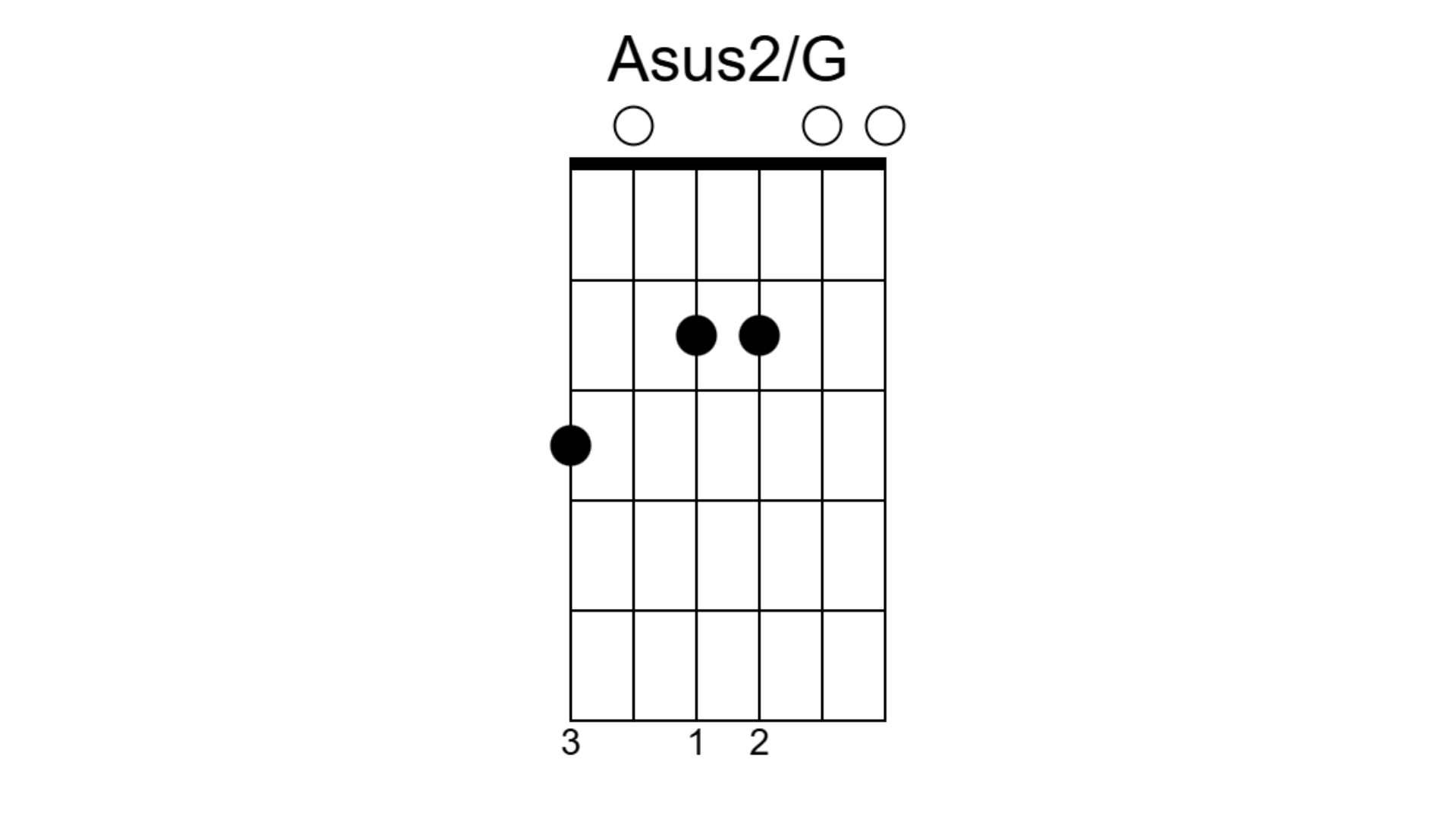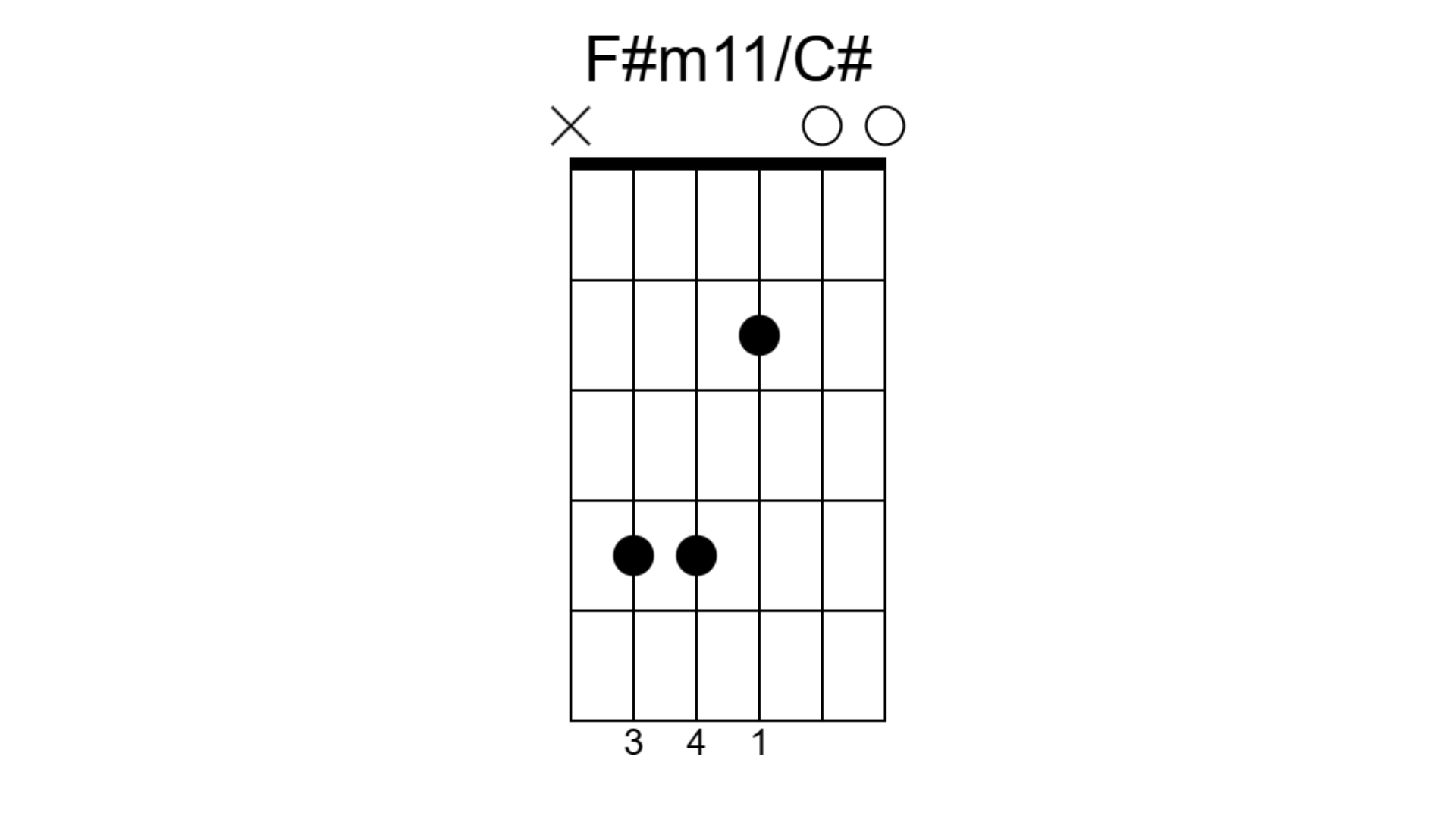
When you think of Oasis’s songwriting approach, you would be forgiven for initially thinking that most of what you hear can be achieved with a few simple chords, and for some Oasis tracks, you will be able to do just that.
But, if you break through the top layer of the band's Noel Gallagher-penned mega hits, you’ll find that a lot more goes into their chord progression than G, C, Em7 and D. Underneath this later of anthems there is an array of interesting and unusual chords that make up some of the bands biggest songs.
In this lesson we’re going to look at four unusual chords that have appeared in Oasis tracks.
E7/G# - Don’t Look Back in Anger

One of the most debated chords of the last 30 years is the E7/G# chord Noel Gallagher plays in the pre-chorus of Don’t Look Back in Anger.
Many guitar players have played this as a regular E7 shape and used their little finger to reach up to the G# on the low E string. However, in 2023 Noel put an end to this debate by showing exactly how he plays this chord.
This is a fairly unusual voicing, he plays the G# on the 4th fret of the low E, and the 4th fret on the G. The other strings are all played open, except for the A which is muted by the underside of the finger playing the low E string.
Asus2/G – Champagne Supernova

This particular chord is actually one of a few unusual chords in the same progression. The track Champagne Supernova starts with a progression based around an Asus2 chord. As the progression advances, the root note of the chord walks down from A to G to F# to E while maintaining the Asus2 throughout.
This creates the impression of a bassline moving underneath the chord and at times, can sound slightly dissonant. This is an interesting technique to give a single chord a different sound over multiple bars.
Esus2 – Little By Little

While an Esus2 might not be typically considered an unusual chord, what is different about this chord featured in the song Little By Little is the chord shape. You’re playing a B power chord on the A and D strings while letting the low and high E string, and the B string ring open.
Depending on the context of the song, and the key of the song, this chord could also be viewed as a Bsus2/E.
F#m11/C# - Supersonic

The song Supersonic contains a very unusual sounding chord in the into. This is an F#m11 chord, but in this instance, the low F# note is not played, it is rooted in a C# note. This chord is arpeggiated through the intro.
The m11 is quite a complex chord voicing, when strummed it can sound like there is a lot going on, but when broken up in this manner it creates an interesting, almost suspenseful, vibe.







